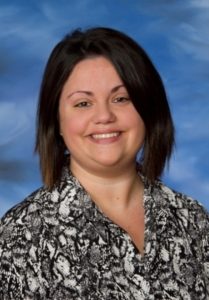
By Dr. Sarah Phillips,
Medical Director
I remember always being fascinated by nature. Even as a young child I was in awe of the complexities of living things. It is not surprising that I ended up seeking a degree in biology and ultimately medicine. As I proceeded through higher education, my amazement of the human body and mind increased exponentially. The intricacies of human anatomy and biochemistry filled my studies and textbooks. The greater lesson I would learn is that it is science that makes us living organisms, while it is the mind and the soul that makes us human.
I did not fully appreciate the inexplicable mind/body connection until I embarked on a career that would surround me with death and dying, I am a hospice physician. I strive to help patients and families through the end of life. I help manage pain and other physical symptoms. I help navigate through the emotions, fears, and uncertainties. I get asked very often, “How much longer?”
No matter what the textbooks say, what we understand scientifically about the human body, what the numbers say on the lab work or vital signs, it is ultimately the soul and mind that often decide when it is time to let go. Throughout my work with the dying, it has become abundantly evident that science cannot explain everything.
A few years ago, I had the privilege of taking care of a beautiful 73-year-old woman and her family. She had been diagnosed with pancreatic cancer. She had developed intractable nausea and vomiting and had come to the Hospice Inpatient Facility for further symptom management. Over the course of a few days, she went from being awake and still able to walk to actively dying. This was not a surprise, but her decline happened more quickly than expected. The days went on. She had had nothing to eat or drink for several days. Her vital signs suggested her body was shutting down. She was unresponsive.
Each day I would come in and see her and her family would ask the question, “How much longer?” I did not have the answer. I asked them if they had said their goodbyes, told her it was OK to go, and that they would be OK. They all had. They expressed that the patient’s goal in her death was to die comfortably in her home. At this point, the patient’s condition was so poor and death appeared imminent. The hour-long ambulance ride home did not seem feasible.
One morning I found the patient out on the patio at the facility, a cool breeze filled the space. She was in her hospital bed surrounded by her children. I sat down and we talked. The kids reminisced.
The patient had been a single mother to the four of them. She worked and managed to complete nursing school all while raising four young children. They remembered how every Wednesday she had off work and they would have a family dinner of homemade fried chicken. They talked about what a strong woman she was — physically and mentally. She fought and beat breast cancer in her 50s. She had had multiple cardiac surgeries. She broke her elbow twice and made a full recovery at age 70. She worked up until the pancreatic cancer diagnosis. She was strong, determined, and often stubborn. She liked things done her way. The children told stories about making home repairs for her and how she would micromanage the entire time. She was very particular.
They laughed and cried. I remember one of the sons turning to his mom and saying, “Mom, we aren’t making fun of you, we could not have asked for a better mother.”
The children made the decision that Mom would go home. Within an hour or so, medications had been ordered, transportation had been set up, nursing was arranged to meet the patient and family upon their arrival at the house. That evening, when I got home from work I decided to call the family and check in to make sure everything went smoothly. One her daughters answered the phone.
She said, “Mom passed away within an hour of getting home.”
Sarah Phillips has been medical director at Hospice of the Panhandle for six years. She holds a certification as a hospice medical director. Hospice is a not-for-profit agency that has cared for patients and families with life-limiting illnesses in Berkeley, Morgan, Hampshire and Jefferson counties since 1980. For more information on how hospice helps residents of the four-county area live more fully, call (304) 264-0406, or visit on-line at www.hospiceotp.org
